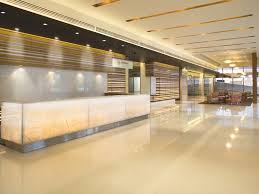INSTRUCTIONS
1.This is an open book test, here are the following instructions:
a. The test duration will be from Week 11 – Week 14 on Monday 1st of June, 2020.
b. Upload this section as one-word document saved under your full name and ID#. The due date is Monday 1st June at 4.00pm and ensure to scan your submission in ‘turnitin’.
c. You will need to do a thorough research of the article, the Video and the topics in the questions.
d. You will need to site literature sources when answering your questions and use examples to explain your answers and,
e. Include a reference section at the end.
TS108 Dimensions of Hospitality Assignment-South Pacific University Fiji.

‘It’s catastrophic’: Fiji’s colossal tourism sector devastated by corona virus
Tourism employs about 150,000 people in the Pacific nation, but travel restrictions mean the work and the money are drying up
On a typical evening Suva’s Holiday Inn is packed with guests from all over the world. But tonight, the dining room of the hotel, one of the most popular in Fiji’s capital, which normally buzzes with the dinner rush, stands empty,Looking lost amid the empty tables is waiter Samuela Yavala.
“I’ve been in the industry for a good 19 years and I have never seen anything like this,” he says.
Before the corona virus crisis, Yavala could make FJ$300 (£106) a week after overtime and tips,which is relatively high for country with a minimum wage of FJ$2.68 an hour for unskilled workers. Since the pandemic, his hours have been reduced and his salary halved and Yavala wonders how he will support his elderly parents. His biggest fear is being laid off completely.
“I don’t know what I’ll do,” he says.
A similar scene is being played out across Fiji’s tourism hotspots as the corona virus bites into the Pacific island’s most important industry. As jobs are slashed and incomes dry up, people like Yavala face a desperate future.
Fiji has so far recorded 16 confirmed Covid-19 cases with no deaths so far. The government responded swiftly and firmly to the outbreak, closing the country’s main airport in Nadi on 25 March, six days after Fiji announced its first confirmed case, which was brought into the country by a flight attendant.Since then, the entire country has to abide by a curfew from 8pm to 5am and police and the military are out enforcing the corona virus laws.
TS108 Dimensions of Hospitality Assignment-South Pacific University Fiji.

The country is braced for a deadly outbreak that would quickly stretch its health system to breaking point. But even if the worst-case health scenario is avoided, a devastating economic impact looks unavoidable.impact looks unavoidable. Tourism contributes nearly 40% to Fiji’s gross domestic product – about FJ$2bn (AU$1.4bn) – and directly or indirectly employs over 150,000 people in various industries. Last year, Fiji had more tourists coming into the country (894,000) than residents living in it (roughly 880,000).The bulk of its tourists come from nearby Australia (41%) and New Zealand (23%), which like many countries around the world have banned international travel.Tony Whitton, the managing director of Rosie Holidays and Ahura Resorts, which plans to reduce its workforce from about 600 workers to 40 essential staff in the coming weeks.
Fiji Airways, the country’s national airline, has grounded 95% of flights amid travel restrictions and border closures around the world and the Fiji Hotel and Tourism Association (FHTA) says a staggering 279 hotels and resorts have closed since the outbreak reached Fiji, causing more than 25,000 to lose their jobs, particularly in the western part of the country’s main island, the hub of the industry and the gateway to many resort islands.
“This will be catastrophic,” says Tony Whitton, managing director of Rosie Holidays and Ahura Resorts. The Rosie Group plans to reduce its workforce from about 600 workers to 40 essential staff in the coming weeks.“My view is that it will take one year at least – so until the end of 2021 – just for the industry to recover and we won’t see growth until at least 2022,” he said, adding that any recovery in the industry will depend on when source markets such as Australia and New Zealand open their borders again.
The knock-on effect of these job cuts will be enormous. Many of those employed in the tourism sector support dependents in a country where the wages are low, cost of living is high, and government support is minimal. The wages Joape Anare earned while working at the Tanoa Group of Hotels in Nadi supported his parents and put his two sisters through school. Joape Anare lost his job in tourism in Nadi and has been forced to move home to his island of Beqa, where he will survive off subsistence farming.
He was laid off due to the corona virus crisis and has been has forced to move back to his village on Beqa Island, located about 45km south of Suva, to survive from subsistence farming. “Handing in my uniform before leaving was really hard and indeed an emotional experience. My work was my life. I don’t know whether I will be returning to this field again,” he said.Fiji’s minister of economy and attorney-general Aiyaz Sayed-Khaiyum announced a FJ$1bn economic stimulus budget in late March to assist businesses and workers in the current climate, which allows some workers to access up to FJ$1,000 from their superannuation funds, with government topping up payments for ineligible applicants.
But Nigel Skeggs, director of The Rhum-Ba, a restaurant bar on Denarau Island in Nadi, has urged the government to reduce taxes to help businesses stay open, saying Fiji’s tourism operators had been struggling for some time with the burden of keeping Fiji’s economy afloat.“Our top-heavy tax system has taken all domestic liquidity away and left operators with minimal profit and significantly reduced cash flows – for most small businesses this means little to no savings,” he said.
The Reserve Bank of Fiji expects the country’s economy to slide into a recession in 2020 after nearly 10 consecutive years of growth. According to the World Bank’s recently released East, Asia and the Pacific economic update, the severity of the contraction will depend on how long the Covid-19 crisis lasts. Professor Stephen Pratt, head of the tourism school at the University of the South Pacific says that the crisis was an opportunity for operators to re imagine what Fiji’s industry will resemble in a post-corona virus world. “It’s a bit of a paradigm shift and it’s a chance for the industry and academics to say what sort of tourism do we want going forward,” he said.
“I think there will be some fundamental changes in not just Fiji but the source markets as well. International politics are involved so there might be things like safe countries or blocs of countries that have their own agreements for travellers.“Tourism is a people to people business and fundamentally goes against social distancing,” he said. “We are watching closely.”
TS108 Dimensions of Hospitality Assignment-South Pacific University Fiji.

Here are the following guidelines when presenting your answers:
a. Font Style Arial
b. Font Size 12
c. 1.5-line spacing
d. Each question should start on a new page
e. You should use in-text citation
f. You should have at least 10 literature sources in your reference list at the end
g. Here is guideline of the amount of words per question
i. Question 1 – 3 – 5 pages
ii. Question 2 – 1.5 – 2 pages
iii. Question 3 – 3-5 pages
Questions:
Answers to the following questions based on the above article, the YouTube Video and what you have learnt during the semester.
1.Discuss the Video and the article above on how COV-19 has made an impact on the tourism and hospitality industry, economically, socio-culturally and at a global level.
2.With reference to the above article, where a large percentage of tourism and hospitality workers have lost their jobs, discuss some options that they could use to survive.
3.With regards the YouTube video, the environment has definitely benefited immensely during COV-19 globally. In light of this situation, discuss some of the long term benefits:
a. of effective waste management system,
b. energy efficiency and renewable energy to a low carbon tourist destination and also
c. discuss some of the challenges that you would face to implement these strategies.
TS108 Dimensions of Hospitality Assignment-South Pacific University Fiji.



